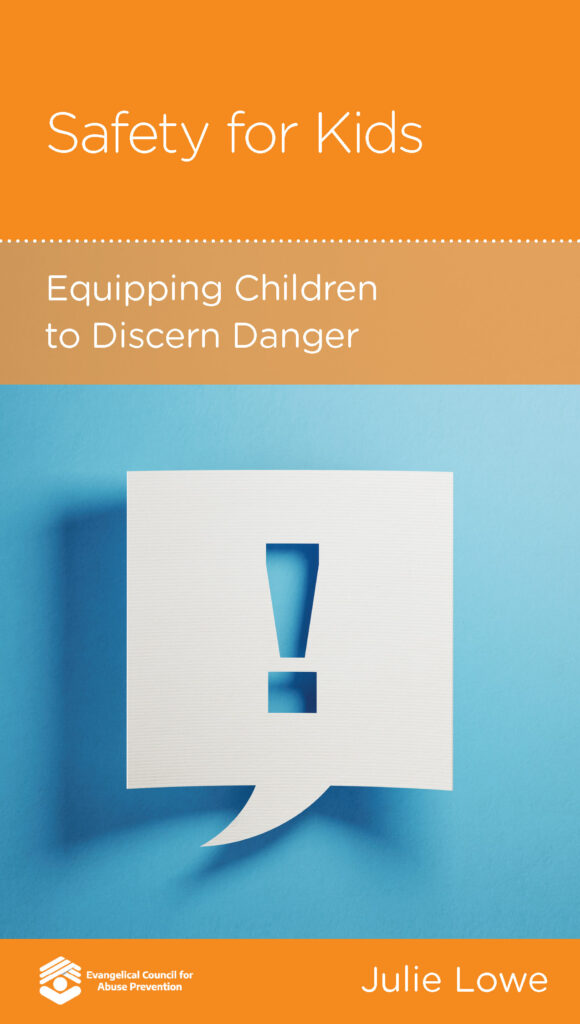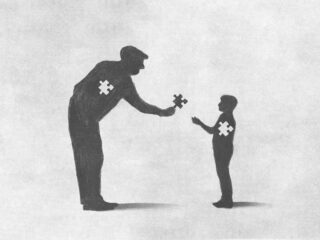For Christian parents, few questions carry more weight than, Does my child need counseling? The very thought stirs concern, hope, and sometimes fear. Scripture reminds us that “children are a heritage from the Lord” (Psalm 127:3), entrusted to our care. Part of stewarding our kids is discerning when they need extra help—help that may extend beyond what we can offer on our own. When we are faced with this question, it is wise not to jump to conclusions. We need to slow down, take inventory, and remember God’s design for parents: You are your child’s primary counselor.
The book of Deuteronomy paints a picture of parents speaking God’s truth diligently to their children—when they sit, walk, lie down, and rise (Deuteronomy 6:6–7). This means counseling, in its most basic form, takes place not in a therapist’s office but at the kitchen table, during the bedtime routine, and on the walk to school. Every parent is called to shepherd the heart, not just manage behavior.
Parents First: Shepherding Before Outsourcing
Before looking outward, then, look inward. God has placed you as the first responder to your child’s soul. This does not mean you need to have all the answers, but it does mean you are called to enter in before you hand off.
Ask yourself:
- Am I spending unhurried time with my child, listening without distraction?
- Do I pray with them and for them regularly?
- Am I consistent in discipline, grace, and encouragement?
- Do I model repentance when I fail?
Ephesians 6:4 calls parents to “bring [children] up in the discipline and instruction of the Lord.” Sometimes parents feel so overwhelmed that they want to hand their child to a counselor to “fix” the problem. But biblical parenting calls us to be engaged even when we feel inadequate. Sometimes a wise first step is for parents to seek help for themselves.
So in determining whether your child needs counseling, ask, Am I faithfully walking with my child, listening well, speaking truth, and modeling the hope of Christ? If not, consider seeking help for yourself first.
Yet there are also times when difficulties rise to a level that requires more support. How do you discern when that time has come? To answer that question, it’s helpful to consider these three categories: frequency, intensity, and duration.
1. Frequency: How Often Does the Struggle Show Up?
Every child struggles. Tantrums, fears, mood swings, and frustrations are part of growing up in a fallen world. Occasional disobedience or sadness does not mean your child needs counseling. But when certain struggles begin showing up frequently—day after day, week after week—it may signal something deeper.
For example:
- A child who occasionally worries about school is normal.
- A child who expresses worry nearly every night before bed may be developing a pattern of anxiety.
Ask yourself: Is my child’s difficulty becoming a regular part of their life, or is it a passing season? Scripture warns that repeated patterns become entrenched. Frequency helps us discern whether what we’re seeing is just a phase or something needing greater attention.
2. Intensity: How Strong Are the Emotions or Reactions?
Children feel deeply, but there is a difference between a child who cries over a scraped knee and one who explodes in rage for hours. Intensity matters.
Consider these questions:
- Does my child’s emotional response seem disproportionate to the situation?
- Does their anger or fear overwhelm not only them, but the whole household?
- Do I feel like I need to walk on eggshells around them because of how big their reactions get?
Scripture reminds us that anger, fear, and despair are real—but they are also powerful forces that can master a person (Genesis 4:7). If your child’s responses consistently feel bigger than what you can shepherd through normal parental care, it may be time to seek help.
3. Duration: How Long Does the Struggle Last?
Finally, consider duration. Some struggles come during a hard season and then pass. A move, a loss, a difficult school year—these may bring heightened emotions, but often those strong emotions fade with time, prayer, and wise parenting.
But if a struggle lingers for months or seems to grow worse rather than better, pay attention. Depression, anxiety, or anger that persists may indicate deeper roots. Scripture encourages us to be patient and steadfast, but also discerning. When the “night” of hardship does not give way to “joy in the morning” (Psalm 30:5), it may be a sign that more help is needed.
When to Seek Help
If struggles are frequent, intense, and long-lasting, outside help can be a mercy. God provides counselors, pastors, and wise mentors as part of his body (Proverbs 11:14). Seeking help is not failure; it is humility.
Practical steps to take when seeking help include the following:
- Talk to your pastor or a trusted spiritual leader. Invite them into the struggle and ask for perspective.
- Consider a biblical counselor. Look for someone who will root their counsel in Scripture and walk alongside both parent and child.
- Partner with your child’s teachers or mentors. Sometimes others see patterns you may miss or can reinforce what you’re working on at home.
- Continue shepherding at home. Even if your child is in counseling, remember that the counselor is not a replacement parent. Your role remains primary.
Reminder: Christ Our Wonderful Counselor
Ultimately, whether struggles are short-lived or long-standing, every child’s deepest need is the same: Christ, the “Wonderful Counselor” (Isaiah 9:6). Parents, you are not asked to fix your child—you are called to love them well and lead them to Jesus. Sometimes that means walking through the struggle with patience and prayer; other times it means inviting help from others in the body of Christ as well as professionals.
Either way, counseling is never just about behavior management—it is about helping your child know the One who is their refuge, healer, and Savior. And it begins with you, the parent, anchoring yourself in the same hope.
So how do you know if your child needs counseling? Pay attention to frequency, intensity, and duration. Consider whether the struggle is occasional and manageable, or persistent and overwhelming. But before you hand off your child, look first to your role as their primary counselor—listening, guiding, and pointing them to Christ.
And when outside help is needed, pursue it not as a last resort, but as a wise step of love. God has not left you or your child alone; he has given his Spirit, his Word, and his people. Rest in this truth: You are not the savior of your child, but you know the One who is.
Safety for Kids
Children today face many dangers, from cyberbullying to pornography, substance abuse to school shootings. How can parents teach their children to navigate these dangers? Family and children’s counselor Julie Lowe offers help to parents shepherding their children in a complex world. She encourages parents to respond to the reality of danger by nurturing their children’s relationship with God and teaching their children to discern good and evil both around them and inside their own hearts.







